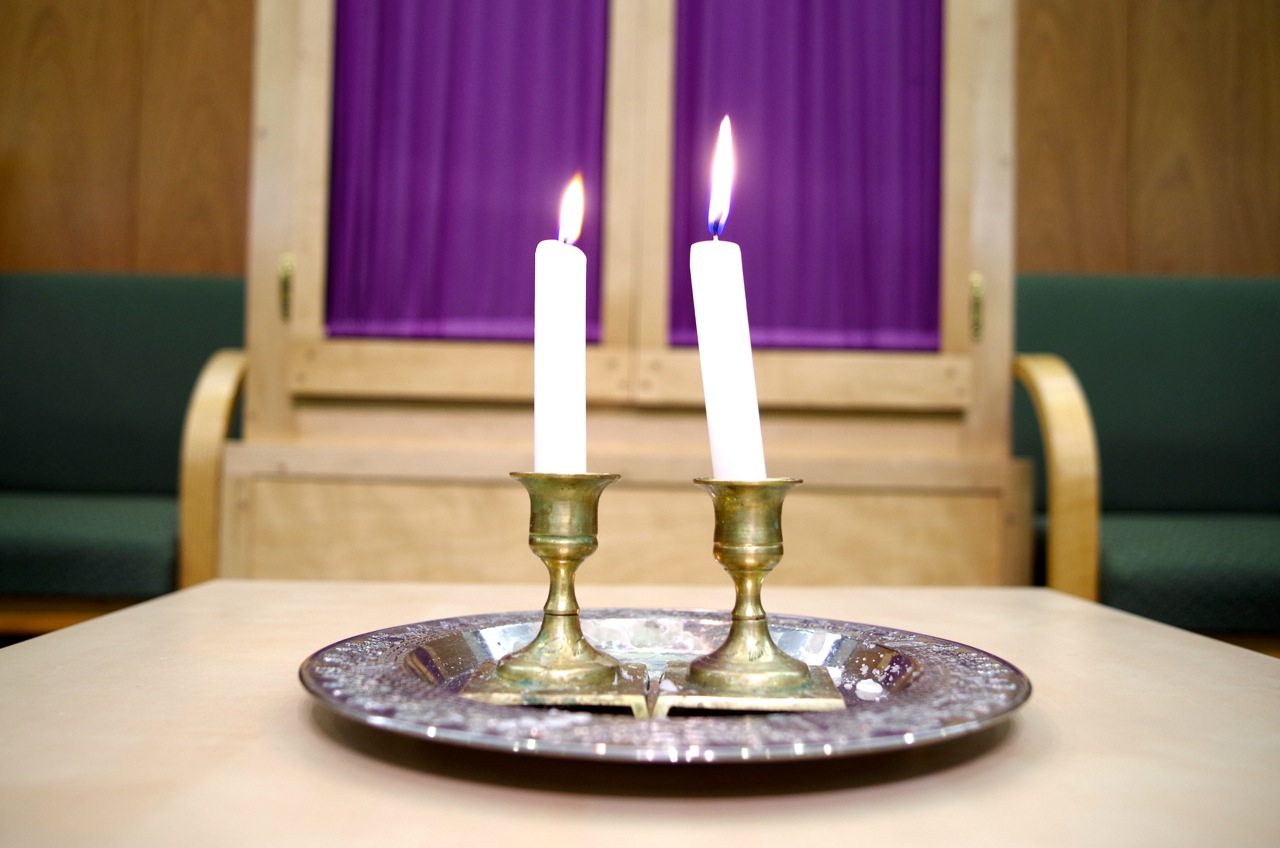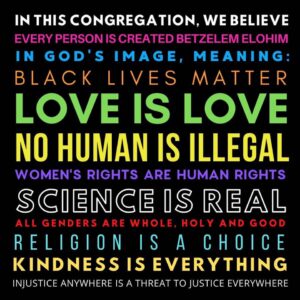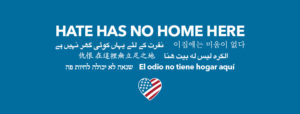Congregation Tikkun v’Or (Healing and Light) services are meant to provide a meaningful, peaceful contemplative experience of worship and community. Service leaders try to strike a balance between Hebrew and English during services, recognizing that many in our congregation do not read or speak Hebrew fluently. We want to express and deepen our spirituality through sensory connection to our sacred language, but we also want to know what we’re saying when we’re praying. And we want to stimulate as much engaged and inspired participation as possible.
Sometimes during a service, congregants may find they are “lost” if they are unfamiliar with the prayers, Hebrew or Judaic practice. We suggest you allow certain words or phrases (in English or Hebrew) to become your own personal focus for a few minutes. It can be just the sound of a word or words. Hopefully that will create a meaningful experience as you continue to participate in the service. If at any time you have questions about what we do and/or why we do it during services, don’t hesitate to ask the Rabbi, a congregant or temple leader.
Singing Prayer and song are synonymous in Judaism. Congregation Tikkun V’Or’s leaders use melodies from many different sources: TvO’s beginnings and previous leaders, the Chassidic repertoire, traditional prayer modes, the many talented composers of sacred Jewish music of our own time, and original or non-traditional melodies we want to share.
You can “la la la” or “dai dai dai” along without words as much as you like. Join in freely. Open yourself to what you hear. Use the sounds you make to express how you’re feeling.
Niggunim (wordless melodies) are spiritually and emotionally creative expressions of that which cannot be expressed in words.
We repeat some songs to encourage singing. We also chant sacred phrases over and over as a spiritual and meditative practice, a way to focus our attention and intention
Silence is an integral part of Jewish worship. Use the silences to focus, to contemplate words or phrases that you’ve just said, sung, or heard. Try simply to experience this special time that you’ve set aside from your usual routine.
For a few specific parts of the service we ask you to please not talk or whisper to anyone, not move around, and not enter or exit. These are the Amidah (standing prayer), Torah Service, and Yizkhor (memorial prayer for the dead).
Children are especially welcome at services and holidays. Our leaders and members delight in their presence at services. We commend and thank you for bringing them.
It’s fine if babies and young children occasionally make some noise. We only ask you to leave the sanctuary with the child or infant if they continue to be audible to the congregation for a prolonged period. To settle young children at services, we suggest books, art materials, quiet games, and even lollipops to distract them. Children who can sit for only so long can leave and return quietly at appropriate times. Nursing or feeding is certainly encouraged. We want families and individuals to feel welcome and respected during worship.
Please remember to turn off all cell phones, beepers and watch alarms during services.
Questions
Please ask! Ask the rabbi, service leaders, members, committee chairs, board members. Speak to us after services, or call 607-256-1471 or email info@tikkunvor.org
THANK YOU for joining us.






